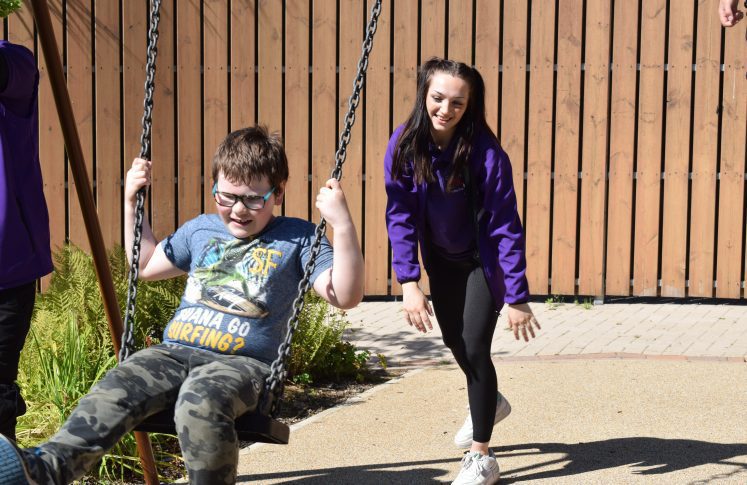
Access to funding for SDR treatment and post-operative rehabilitation
Selective Dorsal Rhizotomy (SDR) is a surgical procedure aimed at reducing spasticity (tight and stiff muscle tone) in the lower limbs. It’s mostly used for children with spastic diplegia (2 limbs affected). Following surgery patients often require extensive physiotherapy and rehabilitation to maximise the benefits of the reduction in spasticity.
Caudwell Children has been supporting children and families to access Selective Dorsal Rhizotomy Treatment and post-operative rehabilitation services since 2012.
For support with our services or for more information contact our Applications team, call 0345 300 1348 or email applications@caudwellchildren.com or chat via our Live Chat.
We can provide assistance to families in the following ways:
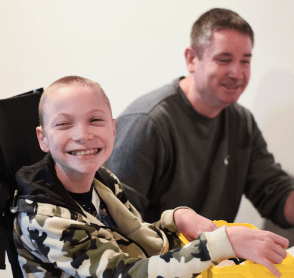
SDR Special Fund
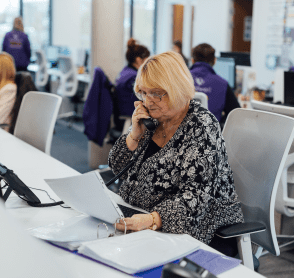
Fundraising Support
Eligibility criteria
Applicants for either support must meet the standard Caudwell Children eligibility criteria, including:
- 18 years old or under
- Family living legally in the UK
- You will be considered for our support if you can demonstrate that either: You are in receipt of means-tested benefits OR your household income is no more than £60,000 excluding benefits. Please check FAQ’s for details.
Fees and Funding
The limited ‘SDR Fund’ is available for parents/carers seeking to self-fund Selective Dorsal Rhizotomy treatment and post-operative support in the UK or at the St Louis Children’s Hospital, USA.
The restricted fund has been made available to support families with the following donations:
- SDR operation costs at UK hospital - £5,000
- SDR operation costs at St Louis Children’s hospital - £10,000
- Post-SDR orthopaedic surgery costs - £1,500
- Post-SDR rehabilitative Physiotherapy/Strength and Conditioning – 50% of the cost of a block of therapy or training
- (minimum total cost £1,000 / £500 donation)
To meet charity accounting procedure, donations can only be made as a direct payment to the respective provider on receipt of an invoice.
Funding is applicable to SDR-related treatment costs only and is not available for any subsistence or travel costs. This fund is strictly limited and will close when all available monies are allocated. Standard charity eligibility criteria applies (see FAQs for criteria).
Therefore, Caudwell Children will pay the total invoice to the hospital/therapist/trainer for treatment or therapy costs upon receipt of the following:
- A valid invoice for treatment costs from the relevant provide
- Transfer to Caudwell Children of the remaining balance of funds required for payment (i.e total amount minus the donation amount)
SDR FAQ's
It’s an operation, where the nerve roots in the lower spinal cord are selectively disconnected to reduce high muscle tone (spasticity) in the leg muscles in children with cerebral palsy. This procedure can only be done once, and only for children who are carefully assessed and selected to be suitable for surgery. When it’s supported by physiotherapy, it can greatly improve your child’s movement.
The surgery aims to:
- achieve a long-term reduction in spasticity
- improve function and mobility
- increase independence
- increase range of motion and improve positioning
Most of the evidence for SDR relates to children aged 4 to 10 years. Some centres perform the surgery on children outside this age range.
UK centres offering SDR
- Alder Hey Children’s NHS Foundation Trust
- Bristol Royal Hospital for Children
- Great Ormond Street Hospital for Children
- Leeds General Infirmary
- Nottingham University Hospitals
- The Portland Hospital for Women and Children
- The Robert Jones and Agnes Hunt Orthopaedic and District Hospital NHS Trust
Some families also choose to attend St Louis Children’s Hospital, USA for SDR surgery.
As the surgery releases the muscles, the underlying weakness in those muscles can be exposed, particularly in the legs, which are essential for standing and walking. Initially, some activities might be more difficult as children have relied on the tension in their legs for stability. But this will improve as the muscles become stronger with intensive physiotherapy.
Because each child is different it will be bespoke to each child but usually it will be three to five times per week for the first three to six months followed by one or two sessions per week for 12-18 months. Some children have intensive blocks of therapy, where sessions happen twice a day for one or two weeks, which research has shown to support the best outcomes.
You will be considered for our support if you can demonstrate that either:
You are in receipt of means-tested benefits, and you can send us all pages of a benefits letter showing your full name and address, dated within the last 12 months.
This would be one of the following:
- Universal Credits
- Tax Credits
- Pension Credits
- Income Support
- Housing Benefit
OR
Your household income is no more than £60,000 excluding benefits, and you can send us one of the following:
- Wage slips for each person in the household showing the full name and address, dated within the last three months.
- P60’s for each person from the last financial year.
- Your most recent set of accounts or a letter from your accountant if you work for yourself.
In both instances you will also need to declare that your savings do not exceed £16,000.
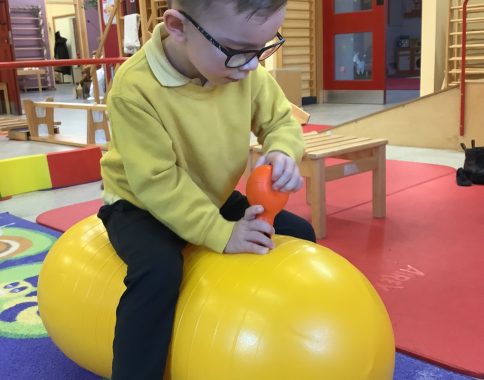
Conductive Education
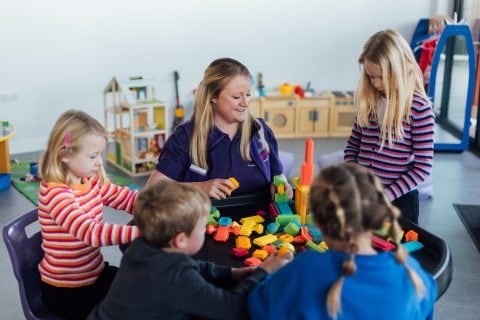
Make a Referral
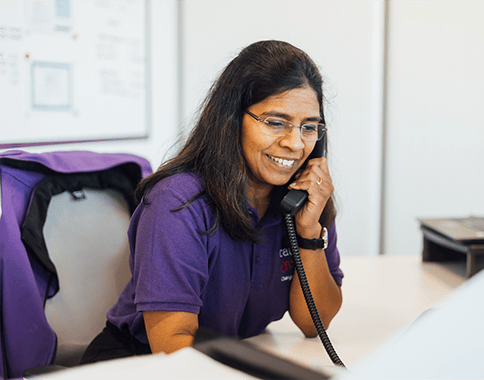
)

)
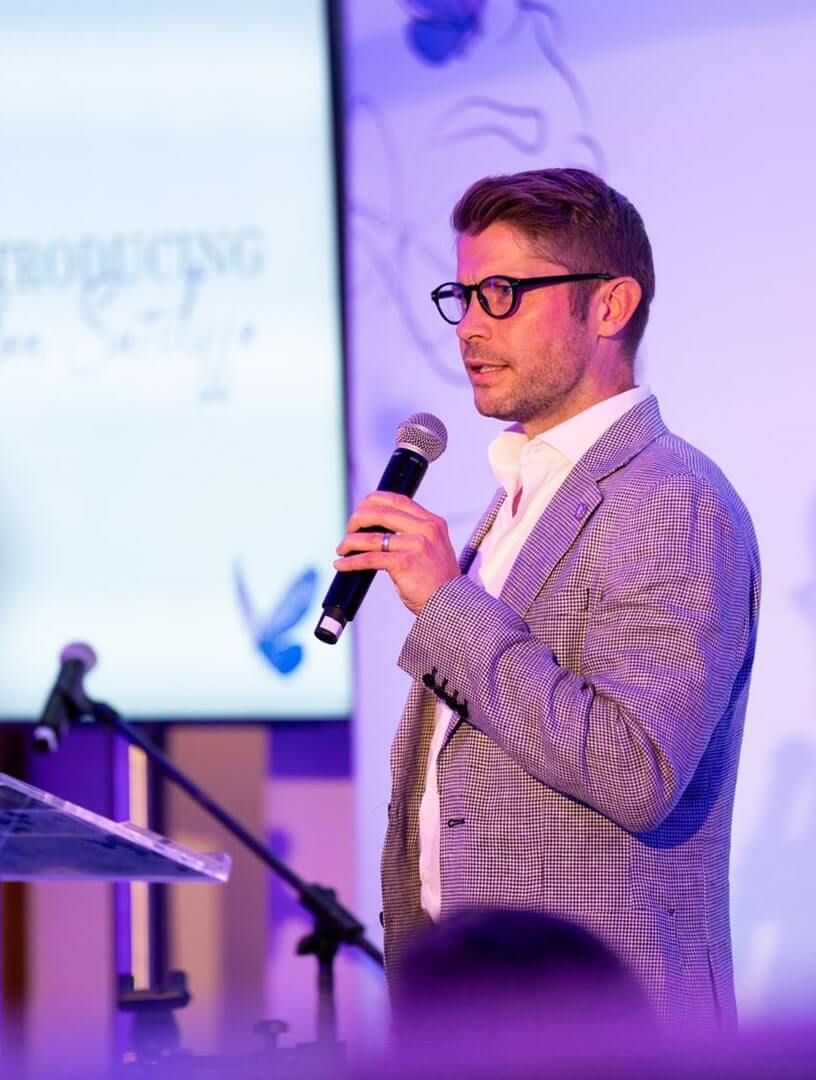)
)
)